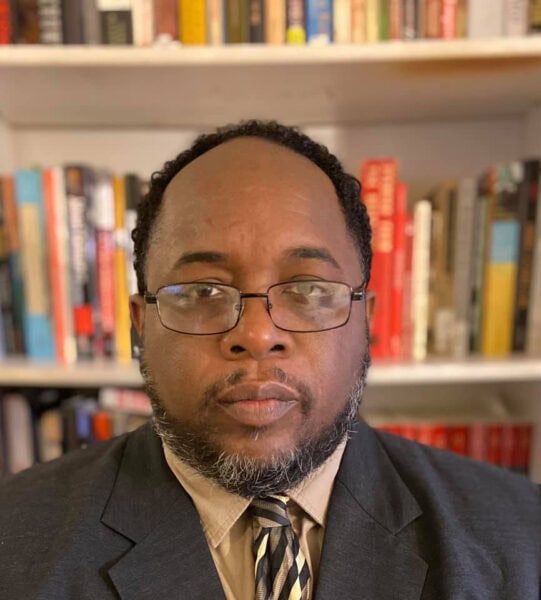Khary Pestaina is a secondary school teacher and third-year PhD student within the Department of History at Florida International University. He lives in Miami, Florida, and has been a member since 2018.

Rama Mantena
Twitter: @kharypest
Alma maters: MA, Florida International University, 2013
Fields of Interest: Atlantic, US, African American, Caribbean, 20th century
Describe your career path. What led you to where you are today?
A career educator for 20 years, participating in NEH and Gilder-Lehrman Institutes and Seminars at Yale, Amherst, Emory and the Schomburgh Center in my time off motivated me to pursue a PhD.
What do you like the most about where you live and work?
Miami is the US gateway to the Caribbean and Latin America, a region previously obscured by slavery and colonialism. The genius and talent from these “other” Americas burst forth in the 20th century and continues to impact global society and human development into the 21st. I enjoy doing research and producing works that promote and implement its histories.
What projects are you currently working on?
Article: “Richard B. Moore’s Campaign against the Name Negro, 1960–71.” Dissertation: West Indian Immigrants to the United States & United Kingdom and Their Quest for Equal Rights in the Atlantic World.
Have your interests evolved since graduation? If so, how?
My research interests continue to evolve and deepen on questions of historical identity, notions of modernity, and transnational history.
What’s the most fascinating thing you’ve ever found at the archives or while doing research?
Locating a surviving African Blood Brotherhood (ABB) chapter memo on original ABB Letterhead that featured the logo, motto, goals, and values of the organization was an exciting find because of the document’s textual richness. It can be found in the Richard B. Moore Papers, housed at the Schomburg Center in New York City
Is there an article, book, movie, blog etc. that you could recommend to fellow AHA members?
Nemata Blyden’s African Americans and Africa: A New History is an excellent new history written for both adept students and fans of studying history.
What do you value most about the history discipline?
Its commitment to truth-telling and willingness to be peer-reviewed and critiqued.
Why is membership in the AHA important to you?
Being a member of the AHA allows me to hear and learn from premier historians and intellectuals from across the United States every year at the annual meeting. This kind of exposure never disappoints in providing avenues for publication and unique insight on how to engage history and become a part of the process that reveals it.
Do you have a favorite AHA annual meeting anecdote you would like to share?
Robert Trent Vinson’s presentation on his research, “Shaka’s Progeny: Zulu Cultures and the Making of the Modern Atlantic World,” blew my mind with its portent.
AHA members are involved in all fields of history, with wide-ranging specializations, interests, and areas of employment. To recognize our talented and eclectic membership, Perspectives Daily features a regular AHA Member Spotlight series.
This work is licensed under a Creative Commons Attribution-NonCommercial-NoDerivatives 4.0 International License. Attribution must provide author name, article title, Perspectives on History, date of publication, and a link to this page. This license applies only to the article, not to text or images used here by permission.



